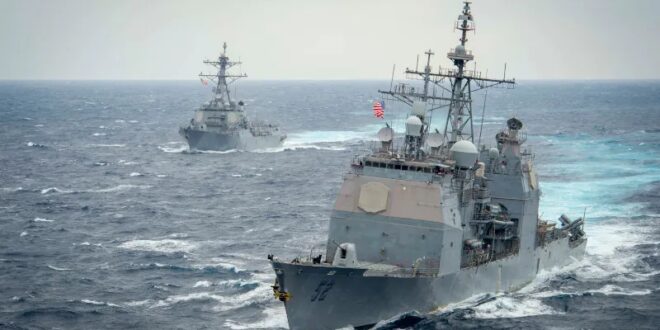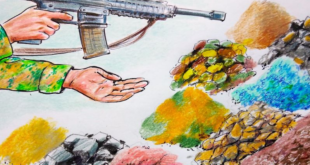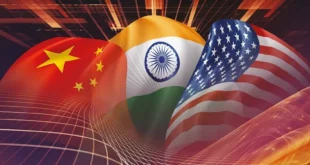It has been a difficult couple of years for Southeast Asia’s South China Sea-claimant countries. While they have been struggling to deal with vaccine diplomacy and manage the COVID-19 pandemic, China has been accused of taking advantage of the situation by becoming increasingly assertive in the disputed areas.
During the pandemic, manoeuvres by the China Coast Guard and even People’s Liberation Army Navy (PLAN) have provoked Vietnam, Malaysia, the Philippines and Indonesia. One of the earliest incidents involved China sending its survey patrol vessels to the Indonesian North Natuna Sea, escorted by a PLAN warship destroyer, and threatening local fishermen.
The region’s militarisation has intensified in recent years, with many countries organising joint military exercises. Indonesia and the United States organised their largest ever joint military exercise, Garuda Shield, which involved almost 4000 soldiers. India and Vietnam jointly held a naval exercise in the South China Sea. The United States and the Philippines resumed the annual Balikatan military exercise that had been postponed due to the pandemic. Meanwhile, China also organised one of its largest ever military exercises with Russia, involving 10,000 troops.
The military presence of non-claimant countries in the South China Sea has also increased. Adding to the US Freedom of Navigation program, the United Kingdom, Germany and France have all sent navy vessels to the region. It seems that these countries want to send a message to Beijing that they are ready to respond to any provocation in the South China Sea.
But the real bombshell for the region was the announcement on 15 September 2021 of AUKUS, a security and technology alliance between Australia, the United Kingdom and the United States. The agreement will see the United States and the United Kingdom assist Australia in developing a nuclear-powered submarine program.
Within Southeast Asia, the reception has been mixed. ASEAN countries have long held differing positions regarding Western military presence in the region, and views on AUKUS have fallen along similar lines. Countries that tend to welcome a Western military presence in the region, such as Singapore, Vietnam and the Philippines have responded positively, or at least neutrally, to AUKUS. Countries like Indonesia and Malaysia, which were already suspicious of such a presence, have been more sceptical.
The military implications of AUKUS are immense, especially in the South China Sea. While the Philippines argues that a stronger Western presence could deter more aggressive moves from China in the South China Sea, Indonesia points out that AUKUS could provoke an arms race in the region and be detrimental to nuclear non-proliferation. AUKUS may not threaten Indonesia or any other Southeast Asian country directly, but it will provoke a response from Beijing and intensify US–China military rivalry in the region. Such heightened military competition will put Southeast Asian countries in an insecure position.
Soon after the announcement, the Malaysian Defense Minister Hishammuddin Hussein stressed the need to maintain dialogue with China. China’s response to AUKUS will be an important indicator of the possibility of war or escalation in the South China Sea. So far, Chinese Foreign Ministry Spokesperson Zhao Lijian said the agreement is ‘extremely irresponsible’ and ‘seriously undermines regional peace and stability and intensifies the arms race’.
While some analysts argue that open war in the South China Sea remains unlikely, the region should anticipate all possibilities. In 2020, when Chinese President Xi Jinping visited a military base in Guangdong, one of his key messages to the soldiers was to ‘put all [their] minds and energy on preparing for war’ and ‘maintain a state of high alert’. China seems to be preparing for a worst-case scenario. In response to AUKUS, the country will likely accelerate its military modernisation.
In any case, the AUKUS announcement has led to heightened uncertainty in the region, pushing all countries to prepare for any scenario in the coming years.
 Eurasia Press & News
Eurasia Press & News




